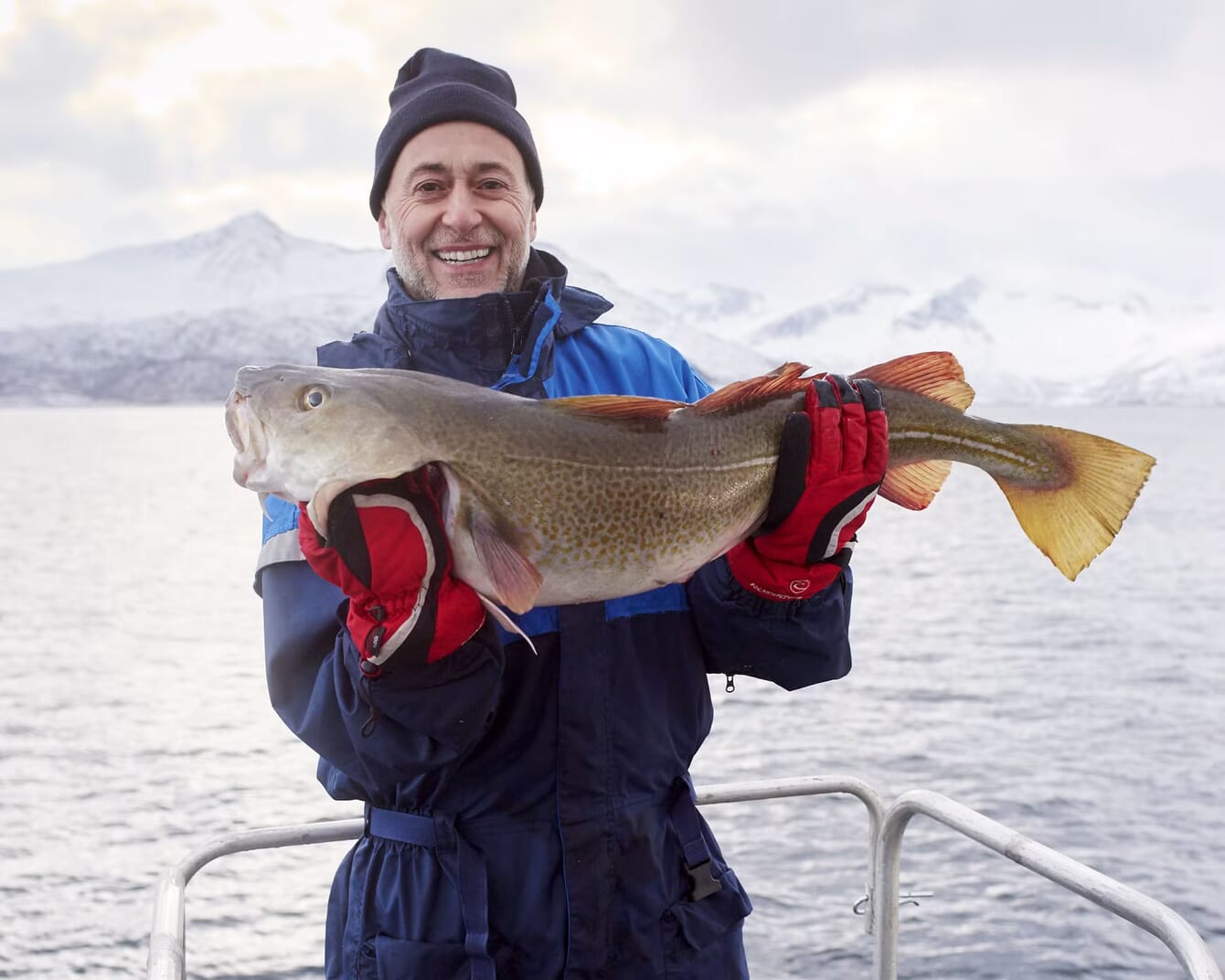
© Norwegian Seafood Council
In particular Roux, who is also a Norwegian Seafood Council (NSC) ambassador, is backing Skrei mølje, a traditional serving where the seasonal Norwegian cod is served poached with its roe, liver and sometimes the stomach, alongside potatoes and onions. Indeed, the chef has served up cod stomachs imported from Norway as a garnish at his iconic Le Gavroche restaurant in London.
As the world is waking up to more sustainable food choices, the spotlight is shifting to highlight food waste and potential solutions to encourage more mindful consumption. In seafood this means taking a nose-to-tail approach to minimise industry waste. In terms of edible parts of the fish, there are options to consider such as baked fish heads, skin crackling, fish mince from scraps, deep-fried fish bones for snacking and seared offal.
With recent estimates claiming more than 75 percent of most fish is either used in animal feed or thrown away as waste, there is untapped potential in these fish parts, and opportunities for businesses and producers to capitalise while operating more sustainably.
“I’m a firm believer that if you take the life of an animal, then you should use all of it – and that should be the same for fish. We know there should be zero waste where possible,” said Roux in a press release.
According to NSC’s Top Seafood Consumer Trends 2025 report, released earlier this year, the combination of the rising cost of living and an increasing consumer desire for sustainable seafood options has opened the door to new or different species and with that a broader adoption of the nose-to-tail philosophy when it comes to seafood consumption.
From cod and haddock, to salmon, to mackerel and herring, the possibilities are far-reaching when it comes to making the most of the whole catch.
Stop Food Waste Day takes place on 30 April and seeks to give recognition to this worldwide issue and its environmental, economic and social impacts. With 33 percent of all food produced globally lost or wasted every year – and just a quarter of that food waste enough to feed the 795 million undernourished people across the world – through this movement, Stop Food Waste Day seeks to educate, inspire and ignite change.



